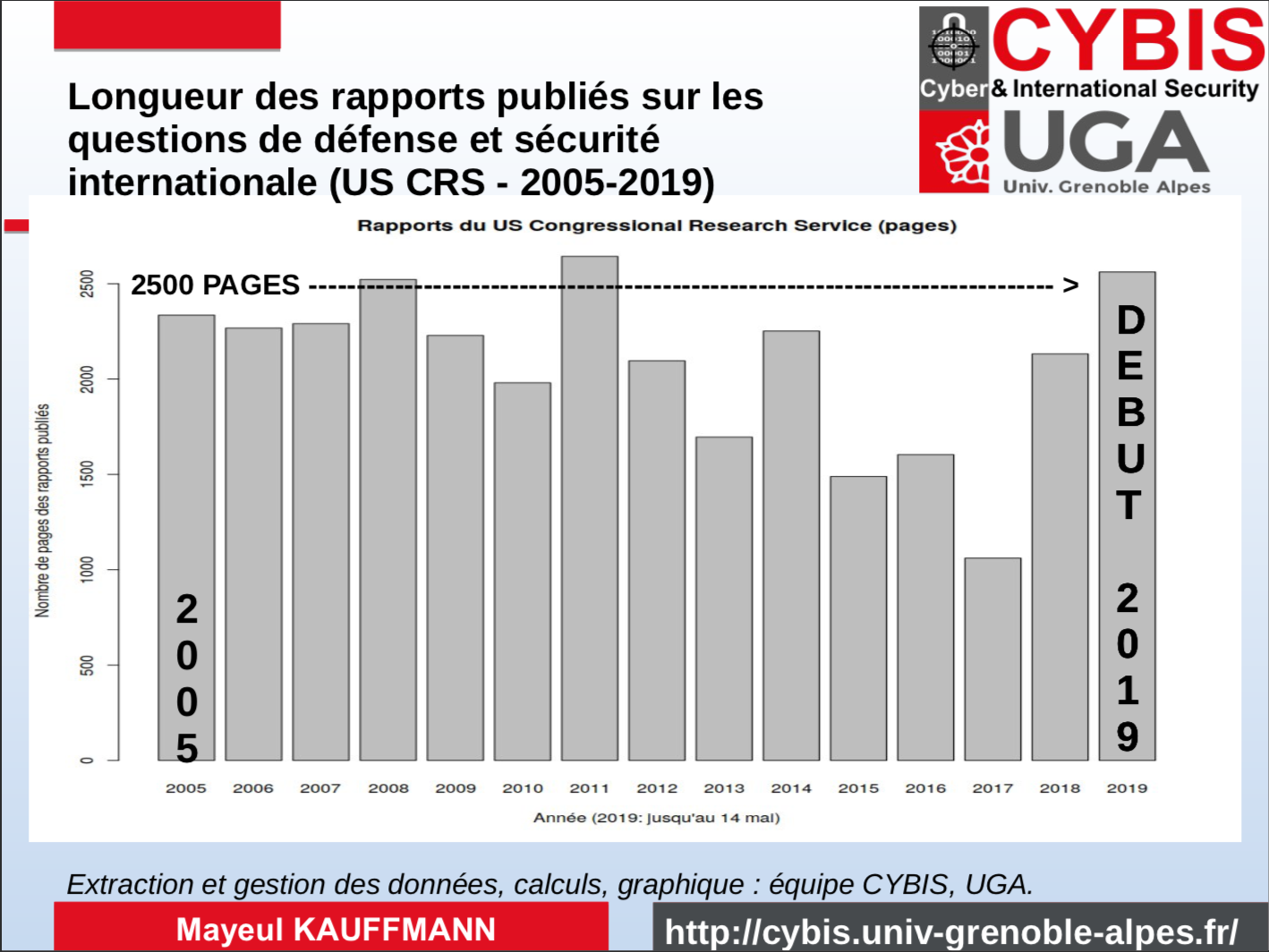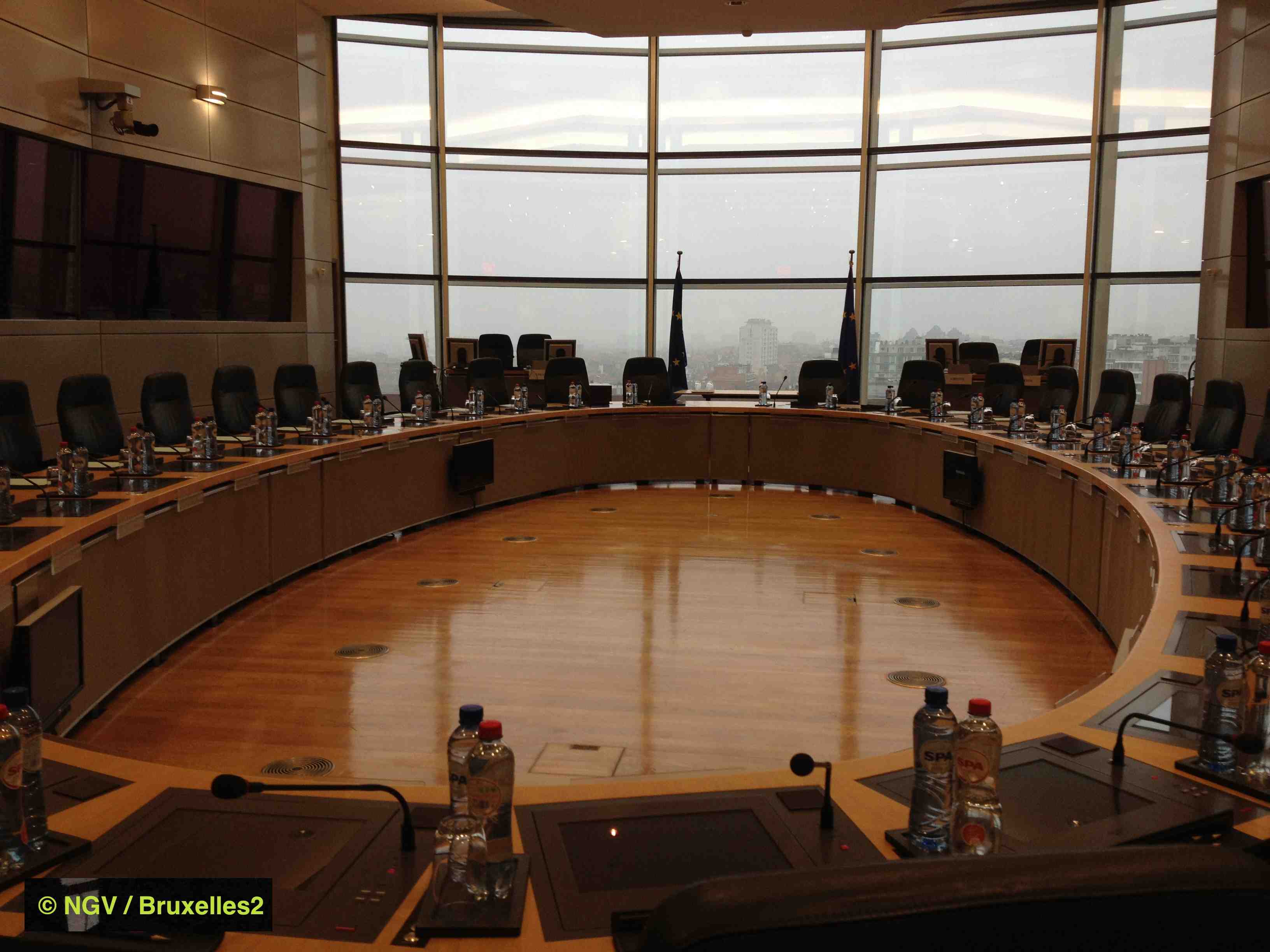Interviews: NATO, USA-EU, PESCO, European Defense Fund, operations…
(B2) A European defense that is moving forward with new instruments, the Atlantic Alliance which is the subject of debate, sharing of experience on European operational commitment... A look back at a day of exchanges during European defense talks, at the University of Paris 1 Panthéon-Sorbonne on May 16

New European initiatives
A need for political will from States
« In the criteria of success [European defense instruments], given that the Commission will be a facilitator, in particular for the capacity part, we will need the political will of the States, efficiency, and not to fall back into certain errors of the past where each State had its national specificities and where we had a lot difficult to have effective program structures, and especially with common specifications. —Nathalie Errard (Airbus).
A useless PESCO
Permanent Structured Cooperation (PESCO) is no more than an accelerator of cooperation, "modular" and "inclusive": we do what we want, with whom we want, as we want. It is always the same cooperation, without a master plan, that we already did at the EDA [European Defense Agency) or at OCCAR. — Frederic Mauro (Lawyer at the Paris and Brussels Bars).
Undersized investments
« The more we digitize ourselves, the more we become vulnerable. [Cybersecurity] is a major challenge. What counts in this area is innovation, and innovation starts with start-ups. But we are crushed. US investment in security/cyberdefense start-ups in 2018 was over three billion dollars. European investment? Less than $500 million. Europe must wake up in this area. — Jean-Louis Gergorin (JEDI).
The unequal game within the Alliance
The main prism trade of the US president
« For Donald Trump [the American president], the only question is the trade question. So, if we come back to the question of European strategic autonomy, [there are two tasks]: [1°] succeed in carrying out the missions of the common security and defense policy and [2°] begin to realize that it may be necessary in the future to be able to act autonomously, not to Americans out, but simply because Americans won't necessarily be there anymore. —Jean-Pierre Maulny (IRIS).
A Protectorate Alliance
« It's no longer an Alliance, it's a protectorate. Europeans buy their protection with hard dollars. — Frédéric Mauro (Lawyer at the Paris and Brussels Bars).
A detachment largest between the two sides of the Atlantic
« We need to have this debate between Europeans on the evolution of American policy and what that implies. Knowing that 1) Donald Trump has a good chance of being re-elected next year [...] and that 2) even if the Democrats return to power, we will always have this growing distance between the United States and the European Union [...]. This is not a defense debate. It needs to be wider. —Jean-Pierre Maulny (IRIS).
A huge and growing spending gap
« The United States is two-thirds of NATO's [defense] budgets, and if we look at the capabilities of the spectrum, we can consider that the Americans [represent] 80 to 85% of the real capabilities of the Western bloc. There is an absolutely huge gap. And I tend to think that it has increased over the last ten years. The Americans have anticipated, with a veritable revolution in military affairs on space integration, cyber... We greatly underestimate this gap at European level. — Brigadier General Bertrand Toujouse, Euratlantique Department, at the French Armed Forces Staff.
Not a permanent concern for Americans
“[NATO], it is not a permanent concern for the Americans! NATO is a thing of 29 countries where you have to get consensus, explain what you're doing - they [the Americans] don't necessarily like it - and accept that the others have their voice and may have different opinions. That's not how you sell F-35s or tax anything. — Jean-Paul Palomeros, former Chief of Staff of the French Air Force and Head of NATO's ACT (Supreme Allied Commander for Transformation)
USA and Brexit question the nature of the European project
« Brexit and the United States are pushing Europeans to make a fundamental choice that is existential in nature about what European defense is. If European defense is perceived as an initiative aimed only at strengthening the political-military cooperation of the Member States, so why not keep the British in the decision-making process? If, on the other hand, it is perceived as an instrument at the service of a larger political project, then the presence of London in the control room becomes a problem. —Federico Santopinto (GRIP).
European operations
A real European operational commitment
« Today, the Europeans are much more involved in operations than is often said. In total, it is about 34,000 soldiers engaged. It is almost the third expeditionary army in the world. — Brigadier General Bertrand Toujouse, Euratlantique Department, at the French Armed Forces Staff.
Back to EUFOR Chad 2008-2009
« In Africa, in any case, there is a question of image. It is because we arrived with a so-called European force that we were able to settle in Chad and the CAR. I think that in Africa, we could not deploy a NATO force, we will increasingly need to deploy other forces, and Europe is capable of being accepted. — Brigadier General Jean-Philippe Ganascia (former head of the EUFOR TCHAD force).
Sharing in strategic anticipation necessary
« The European Intervention Initiative (EII) stems from a duty to make Europeans accountable. Four [Goals] : carry out strategic anticipation, cold planning, support for operations, doctrine and experience feedback. The essential finding [is] : if there is no sharing in strategic anticipation of a crisis situation, knowledge of the impact of this crisis on European interests in the long term [...], on the day when there is a crisis, there is no reason that a decision can be taken within a limited time. —Brigadier General Bertrand Toujouse.
Insufficient statistical data
Comparing American and European defense statistical data collection and research systems: since the beginning of the year, there are already 2500 pages which have been published by the congressional research body on security/defence issues. If we take comparable periods, the Joint Research Center of the European Union published on average, not 150 reports per year like the Americans, but one, or two. Since the beginning of the year, only 40 pages have been written and published by the European institutions on security issues. So we are absolutely hugely behind. — Mayeul Kauffmann (CESICE/University of Grenoble Alpes).

(quotes collected and assembled by Coline Traverson, st.)

